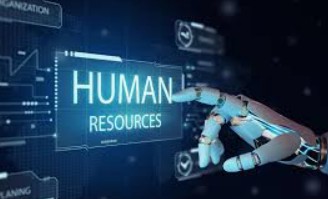The route is the goal:
Vocational training
Start into professional life
I completed my vocational training from September 1983 to February 1986 at the VEB Energiekombinat Berlin. The training occupation was called "Skilled Worker for BMSR Technology," where "BMSR" stands for "Operational, Measurement, Control, and Regulation Technology." It sounds a bit cumbersome and is comparable to today's "Electronics Technician for Automation Technology."
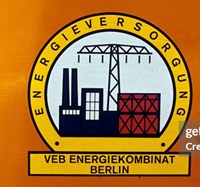
Career start with interruption
Just started and already interrupted
After completing my training, I began my career at the Berlin-Lichtenberg combined heat and power plant. However, my career was interrupted by my basic military service between May 1986 and October 1987.
The first degree and a voluntary position
Studying while working and volunteering
In September 1988, I began my part-time degree program in "Automation of Process Engineering" at the Lichtenberg School of Engineering (now HTW Berlin) and the University of Applied Sciences for Mining and Energy in Senftenberg (now BTU Cottbus). With the fall of the Berlin Wall, I began volunteering for the ÖTV (now ver.di) trade union. A groundbreaking decision, as it later turned out.

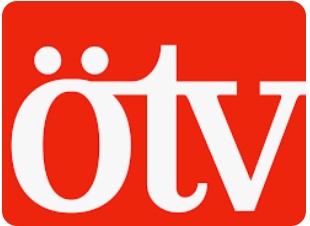
The energy combine becomes EBAG
The change is also noticeable in professional life
In 1990, the VEB Energiekombinat Berlin became EBAG, a wholly-owned subsidiary of Bewag. This name change brought about comprehensive changes in the company's working environment. My volunteer work with the ÖTV gained considerable importance, and I was elected to the executive committee of the company's trade union group. During my studies, it was interesting to observe how lectures on socialist economics suddenly became business administration. Some lecturers visibly had to bend over backwards.

Turbulent times
The speed of change is increasing significantly
I take on responsibility and voluntarily chair the collective bargaining committee at EBAG. In 1992, I was elected to the Bewag supervisory board as the youngest member in history, where I represented employee interests. In 1994, we achieved a breakthrough in collective bargaining negotiations, and we became the first East German company to achieve equal pay for equal work. From then on, there was only one collective agreement at Bewag, and EBAG was merged into Bewag. Did we really make a bit of history???
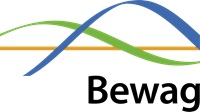
Studying with obstacles
Is physics really different in East and West Germany???
A slight aftertaste of reunification: I finished my engineering studies in 1993, but I haven't been awarded a diploma. I studied in the "East," and the degree wouldn't be equivalent. Yes, I had a few question marks on my forehead!!! But whatever, I stuck with it for another two years to get my diploma. After all, the gaps between East German and West German physics had to be closed somehow—irony aside!

First tasks as an engineer
...and then came the Millennium Project
In 1995, I finally received my diploma and could now call myself a qualified engineer. This meant that my first tasks as an engineer at a power plant began, and that was certainly challenging. The systems from the early 1970s were being completely modernized and equipped with control systems. There was a lot to do. And then the turn of the millennium approached, and there was great fear that all the lights would go out during the biggest New Year's Eve party because the computers would stop working. So a very complex project began to ensure the power supply on this crucial date. A little spoiler: with a few exceptions, the entire system remained stable, and even the minor outages posed no threat to the security of supply.
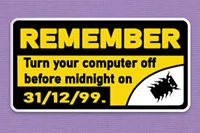
The switch to HR
A completely different world
In May 2001, I moved from technology to the HR department of what was then Bewag. The transition was not easy, as it meant that my union work was over. The new responsibilities were comparable to volunteer work, just from a different perspective. I quickly realized that I needed to improve my methodology and began another part-time degree program. This time, it was to be a Master of Business Administration (International Management). I was fortunate enough to study at two universities: the Berlin School of Economics and Law and Anglia Ruskin University in Cambridge. And I did it in a study group with fellow students from 13 different nations. A definite asset for my personal development.
I was already entrusted with my first management role during my studies. In March 2003, I became head of the HR IT department, and just six months later, in December 2003, I became head of the HR principles department. This led to exciting challenges in the years to come.
![]()
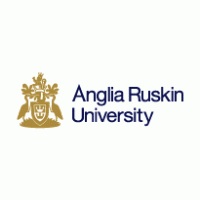
A new company is created
The formation of the German Vattenfall Group
In 2003, everyone in the energy industry was talking about the new force. The original idea of Hamburg-based HEW and Berlin-based Bewag buying each other to create a major new player in the German energy market failed due to the egos of the then CEOs of both companies (my very personal opinion). The really big deal was brokered by the Swedish state-owned company Vattenfall. They first bought HEW, then used HEW's financial resources to buy Bewag, and Bewag's financial power was used to buy Laubag and Veag, the two East German energy giants. Over the next few years, the four roughly equally sized companies merged to form the German Vattenfall Group. I was able to work on key projects during this phase. A uniform group collective agreement was negotiated with the three largest German unions (IG BCE, IG Metall, and Ver.di). A new, unified SAP landscape was designed and built from two SAP landscapes and two PeopleSoft landscapes. Several new companies were created from the four "old" companies along the value chain, and several thousand employees were transferred to new companies through business transfers. I've probably never had a steeper learning curve in my life than during this time.
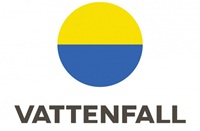
First time HR manager
Quite a cliffhanger at the beginning
In the spring of 2009, my previous boss was appointed to the position of Human Resources Director for the Lusatia branch of the company. We were attending a management retreat when he told me over breakfast that I was to take over as interim head of HR. I knew how that works. Okay, I had been his deputy up until now, but assuming responsibility for approximately 360 employees and a budget of almost €40 million without any prior warning is not easy. But I was able to quickly settle into the role. There was, however, a small obstacle. There seemed to be no consensus within management as to whether I was the right person for the job. The HR Director was in favor, and the CEO apparently didn't want to decide. I have no idea whether it was really about me or whether the two were just arguing among themselves, but it was certainly a bit of a stalemate. In the fall of 2009, my appointment as Head of HR became official (again without my prior knowledge). The announcement was made at a staff meeting in a movie theater, and it's probably rare for the workforce to erupt in celebration at such information. But it actually happened, and I have to admit, it felt incredibly good.
I worked in this role for Vattenfall until the end of 2014. Then I embarked on a new adventure.

Gazprom Germania
A completely different world
Back in the spring of 2014, a headhunter approached me and asked if I'd be interested in working as a human resources manager at a large Berlin-based energy company. Okay, at first I thought I was already there, but it was a different dimension. At the time, Gazprom Germania was a kind of intermediate holding company for all of Gazprom's business outside of Russia, and they were looking to hire an experienced human resources professional who could build service structures. That sounded very interesting at first. But things turned out differently than expected. Gazprom Germania was supposed to acquire 50% of the shares in Kassel-based Wingas from Wintershall. This would have made Wingas a wholly owned subsidiary of Gazprom Germania. However, the deal fell through shortly before completion. The reason: the Russian occupation of Crimea at the end of 2014, just weeks before I was supposed to start my job. The deal did go through a few months later (at the time, business deals for the EU were apparently more important than international law), and I was supposed to be able to start building the service structures. However, nothing came of it, as Gazprom wanted to reorient its business as a whole. This included a complete change of the previous management in Berlin. It quickly became clear to me that I wouldn't be staying here long. I took on responsibility for an upcoming restructuring project and ended my employment at Gazprom by mutual agreement after this project. Nevertheless, it was a very exciting time with many new insights.
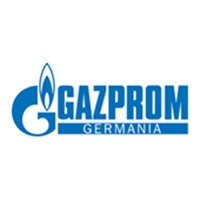
A whole new adventure
Off to self-employment
After many years in corporate structures, I finally took the plunge and became self-employed. Was that the right decision? I think so. Yes, there are risks, and they shouldn't be underestimated. But overall, it was a good decision. I'm grateful for the partners who supported me from the very beginning, and I'm grateful for the many client projects I've been able to support so far. Gaining insight into various industries has shown me that the challenges in human resources management are very similar. And there's no end in sight to new challenges.
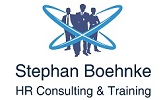
Everything back to zero
A global pandemic and its effects
A global pandemic is keeping us on our toes and is having a serious impact on many sectors of the economy. I, too, was affected and struggled with the effects of the pandemic.

Digitalization in the fast lane
What a crisis can trigger
The digitalization booster already kicked in in 2020. In times of working from home and social distancing, good old paper processes are no longer feasible. New solutions are needed, and especially in the paper-heavy HR business, there is an increasing focus on digitalization. For me, this is a gift, as I can now optimally combine my experience as a HR professional with that of an automation engineer.

And now it really starts
AI and its consequences
With ChatGPT, AI entered the everyday lives of many businesses and households. More and more AI-based applications are now emerging, and the results of these digital colleagues are constantly improving. The fact is, our working world will be turned upside down by this technology in the coming years, and companies must be well prepared for it. HR, in particular, plays a key role here and will be one of the biggest beneficiaries of this technology. Therefore, it is also a focus of my consulting work!
